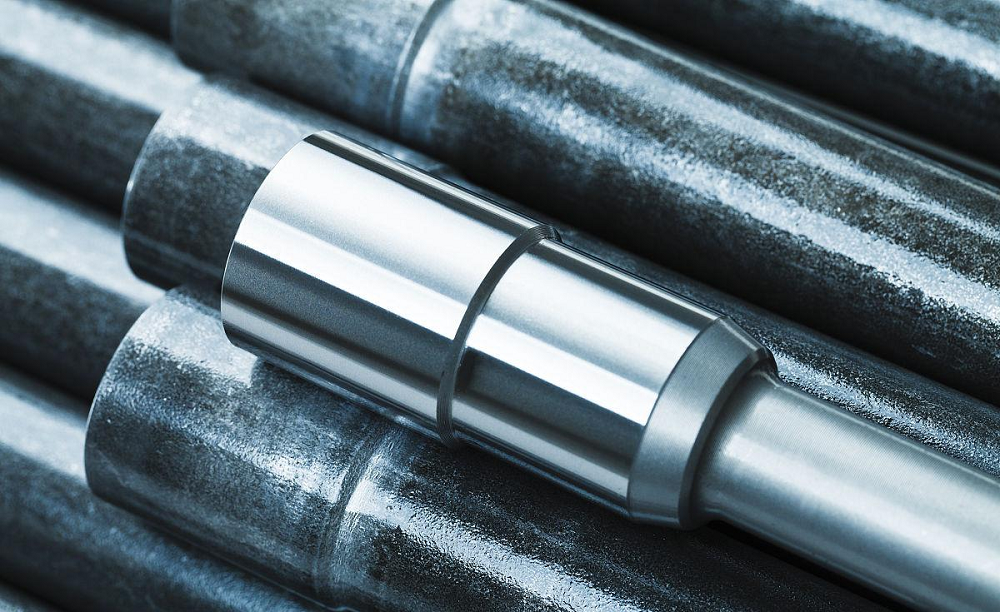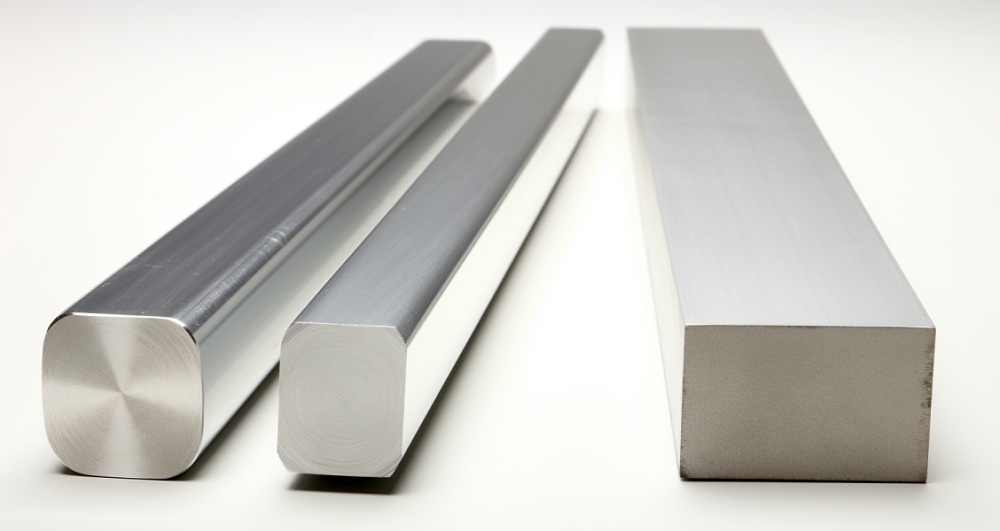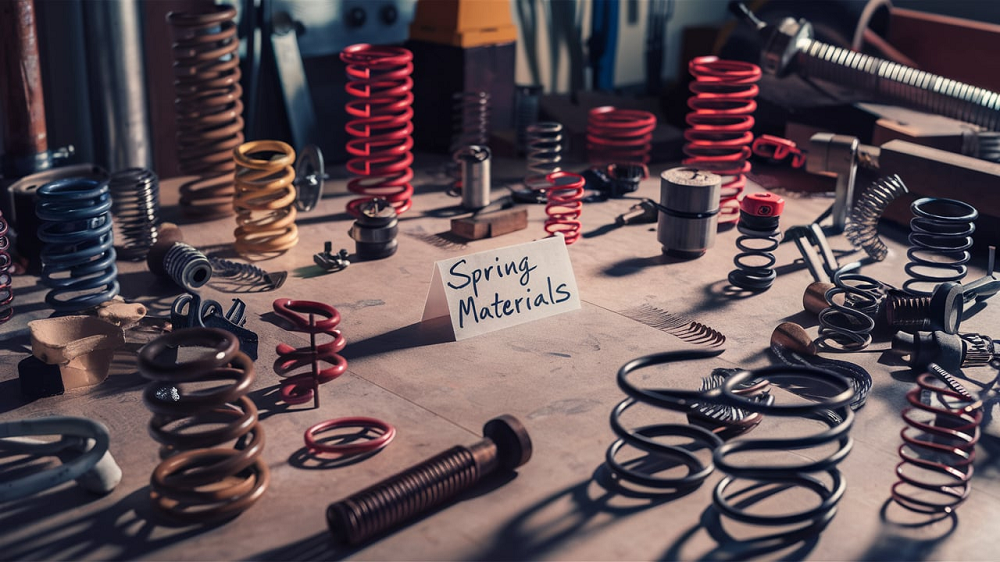Aluminum billets are key materials in modern manufacturing due to their lightweight and high strength. Picture a huge aluminum billet in a factory, reflecting dazzling light like a symbol of future technology. Producing aluminum billets involves complex metallurgical and mechanical processes, integrating modern science and technology. From extracting aluminum ore to casting and extruding high-purity aluminum, each step shows the close integration of science and industry. This combination gives aluminum billets excellent performance and adaptability in industrial production. With a focus on sustainable development, aluminum billets are increasingly used in new energy vehicles and renewable energy equipment. Research indicates they will be among the most promising industrial materials in the next decade.
In this article, we will explore in depth the production process, performance characteristics, and application examples of aluminum embryos in various fields, revealing the important position of this basic material in modern industry.
What is Billet Aluminum?
Billet Aluminum refers to a type of raw aluminum material used in metalworking, obtained by processing aluminum ingots or aluminum slabs into desired shapes and sizes through plastic processing methods. Generally cylindrical or rectangular with a certain length, billet aluminum is mass-produced using equipment such as molten steel furnaces or continuous casting machines. Proper quality control is crucial because the uniformity, strength, and workability of the material affect the quality of the billet aluminum. Processed from aluminum blocks, ingots, or slabs through methods like rolling, extrusion, stretching, and forging, aluminum billets are widely used in industries such as construction, aerospace, and automotive manufacturing. They can be transformed into various product forms, including profiles, tubes, rods, plates, foils, strips, wires, powders, and forgings. We produce CNC-machined aluminum alloy parts according to customer requests.
General Chemical Composition
The chemical composition of aluminum billets mainly includes the following elements:
- Aluminum (Al): This is the primary component, dominating the composition.
- Silicon (Si): Typically ranges from 0.3% to 0.9%.
- Iron (Fe): Generally does not exceed 1%.
- Copper (Cu): Usually ranges from 0.1% to 2.2%.
- Magnesium (Mg): One of the main alloying elements, typically ranging from 0.05% to 3.6%.
- Manganese (Mn): Usually ranges from 0.1% to 0.5%.
- Zinc (Zn): Typically ranges from 0.1% to 0.6%.
- Titanium (Ti): Usually ranges from 0.08% to 0.20%.
- Chromium (Cr): Typically ranges from 0.05% to 0.30%.
Billet Aluminum Properties
The performance characteristics of aluminum billets include:
Strength
Aluminum billets are made from high-strength metal materials, capable of resisting physical loads and stresses without easily deforming or breaking, making them reliable for structural applications.
Durability
Though steel ingots are often noted for their durability, aluminum billets maintain their performance under repeated loads or long-term use, depending on their crystal structure and material uniformity, ensuring sustained and stable operation of products and structures over time.
Uniformity
Manufactured into uniform shapes with consistently arranged internal crystal structures, aluminum billets ensure consistent material properties and performance, which is vital for quality control and reliability in finished products.
Workability
The uniform size and crystal structure of aluminum billets make them suitable for various manufacturing processes, including deformation, machining, and cutting. They can be easily processed into desired shapes and sizes, ensuring precision and consistency in product dimensions.
Heat Treatment Performance
Aluminum billets can undergo various heat treatments to alter their properties:
- Strength Adjustment: Changes in the crystal arrangement and grain size can increase or decrease the material’s strength.
- Hardness Control: By controlling the temperature and cooling rate, the hardness of the billet’s surface and interior can be adjusted.
- Durability Enhancement: Heat treatment can improve the material’s durability and creep performance by altering the crystal arrangement and growing grains.
- Stress Relief: Heat treatment can alleviate internal stresses within the material, enhancing its overall performance and lifespan.
In summary, aluminum billets offer a combination of low density, excellent corrosion resistance, good workability, and superior thermal and electrical properties, making them indispensable in a wide range of industrial applications.
Aluminum Billets Types & Grades
Aluminum billets come in a variety of types and grades, each with unique properties and applications:
Pure Aluminum Billet
- 1000 Series Aluminum: These billets contain 99% or higher purity aluminum.
- Properties: High corrosion resistance and excellent electrical conductivity.
- Applications: Electrical wiring, conductors, architectural components.
Aluminum Alloy Billets
These billets are made by adding alloying elements to aluminum, resulting in enhanced mechanical properties and specific characteristics.
- 6000 Series
- Examples: 6061, 6063
- Properties: Excellent strength-to-weight ratio, weldability, and corrosion resistance.
- Applications: Structural components, frames, extrusions, automotive parts.
- 7000 Series
- Examples: 7075
- Properties: High strength, good fatigue resistance, and excellent machinability.
- Applications: Aerospace, automotive, sporting goods industries.
- 5000 Series
- Examples: 5052, 5083
- Properties: Good corrosion resistance, moderate strength, and excellent formability.
- Applications: Marine applications, transportation, architectural components.
- 3000 Series
- Examples: 3003, 3105
- Properties: Good formability, moderate strength, and excellent corrosion resistance.
- Applications: Roofing, siding, heat exchangers, general sheet metal work.
Specialized Aluminum Billets
- High-Strength Aluminum Billet
- Properties: Exceptional strength and lightweight properties.
- Applications: Aerospace, military, high-performance automotive industries.
- Heat-Treatable Aluminum Billet
- Properties: Designed to be heat-treated to achieve specific mechanical properties.
- Applications: Structural components, transportation, applications requiring high strength and durability.
Is Billet Aluminum Stronger than Steel?
Yes, billet aluminum can be stronger than steel. Specifically, the following can be said:
Among aluminum alloys, those in the 7000 series are particularly strong. A representative material is A7075, which is called “super duralumin.” A7075 has the highest strength among aluminum alloys and is stronger than steel. On the other hand, A6061, a common aluminum alloy, can achieve strength comparable to that of steel by heat treating (T6 treatment). With proper alloy design and process control, billet aluminum can achieve strength higher than steel, making it widely used in fields such as aircraft and automobiles because it is both lightweight and strong.
How To Make Billet Aluminum?
Aluminum billets are made from aluminum ingots imported from all over the world as the main raw material, with the following method:
- Melting Furnace: Melt the ingots (base metal) and add magnesium, silicon, etc., depending on the type, to adjust the composition.
- Casting Machine: Pour the molten aluminum into a casting machine to make billets.
- Pit Casting: Remove the billet after pit casting and transport it to the next process with an automatic conveying and tilting device.
- Homogenizing Furnace: In the continuous homogenizing furnace, perform heat treatment to uniformly disperse the added magnesium, etc.
- Cutting: Cut to the required dimensions as necessary.
Aluminum Billets CNC Machining Methods and Applications
Various CNC Processing Methods for Steel Billets
The processing methods for steel billets are diverse, including extrusion, forging, cutting, welding, and cold forging.
- Extrusion: Used in building materials, automotive parts, railway components, electrical equipment, etc.
- Forging: Used for drill bits, milling cutters, hammers, etc.
- Cutting: Used for gears, bearings, pistons, valves, bolts, etc.
- Welding: Used in the manufacture of structures, ships, bridges, pipelines, storage tanks, equipment, etc.
- Cold Forging: Used for hammer heads, automotive crankshafts, valves, etc.
Applications of Aluminum Billets
Aluminum billets, as an important industrial raw material, play a key role in multiple fields such as construction, transportation, electronics, and new energy. They are a crucial support material for the development of modern industry and high-tech fields. Their main uses and application areas are as follows:
- Construction Industry: Aluminum billets are used to manufacture aluminum doors and windows, curtain walls, and various building decoration materials. Aluminum profiles are also commonly used for house gutters and wall panels.
- Transportation: Aluminum billets are widely used in automobiles, motorcycles, rail vehicles, etc., especially in reducing weight and promoting energy saving and emission reduction. For example, aluminum materials are used to manufacture automotive engine blocks, aluminum wheels, rail vehicle body materials, and aircraft fuselage materials.
- Aerospace: Aluminum billets and their alloys are extensively used in aircraft and spacecraft, including aircraft fuselages, landing gears, and satellite remote sensing calibration devices. Silicon carbide particle-reinforced aluminum matrix composites are also gradually being applied in the aerospace field.
- Electronics Industry: Aluminum billets are widely used in electronic devices, such as heat sinks and electrical component housings. Due to aluminum’s excellent thermal conductivity, it is an ideal material for managing the heat of electronic devices.
- New Energy: With the advancement of the dual-carbon strategy, the demand for aluminum billets in the photovoltaic new energy industry is rapidly increasing, especially in photovoltaic aluminum and new energy vehicle battery trays.
- Consumer Electronics: The application of aluminum billets in smartphones, wearable devices, and televisions is growing rapidly, mainly due to their high strength and lightweight characteristics.
- Packaging Industry: Aluminum packaging, known for its excellent barrier properties, long shelf life, and recyclability, is steadily increasing in demand in the packaging of food, beverages, pharmaceutical products, etc.
- Other Fields: Including medical equipment, machinery parts, and shipbuilding. For example, the application of aluminum alloys in ships is gradually expanding, mainly used for hulls and onboard structures.
Aluminum Billet Cost (Price per Pound)
The cost of billet aluminum can vary significantly based on various factors:
- Alloy Type: Different aluminum alloys have distinct properties, which affect their prices. For instance:
- 6061 and 6063: Typically priced between $2.00 and $2.50 per pound.
- 7075: This high-strength alloy is more expensive, with prices around $2.16 to $2.30 per pound.
- Billet Size: Larger diameter billets often cost more per pound than smaller ones due to the additional processing required. For example, larger 6061 aluminum billets (minimum 3 tons) are priced between $2.15 and $2.30 per pound.
- Market Demand: The price of billet aluminum is also influenced by market dynamics. When the demand for aluminum is high and supply is limited, prices tend to increase. Conversely, when demand is low, prices may decrease.
Typical Price Range
Based on current market data, the typical price range for billet aluminum is around $2 to $7 per pound.
Specific Price Points
- 6061 and 6063 Aluminum Billets: $2.00 – $2.50 per pound
- 7075 High-Strength Aluminum Billets: $2.16 – $2.30 per pound
- Large 6061 Aluminum Billets (3 tons minimum): $2.15 – $2.30 per pound
Prices for billet aluminum can fluctuate based on market conditions, supplier and location, and order quantity, so buyers should compare quotes from multiple suppliers to secure the best deal.
Billet Aluminum vs 6061
Earlier in the article, we mentioned that 6061 aluminum is a type of billet aluminum. However, billet aluminum and 6061 aluminum alloy are terms often used in manufacturing and engineering, but they refer to different aspects of aluminum materials. Here is a comparative table to illustrate the differences between them:
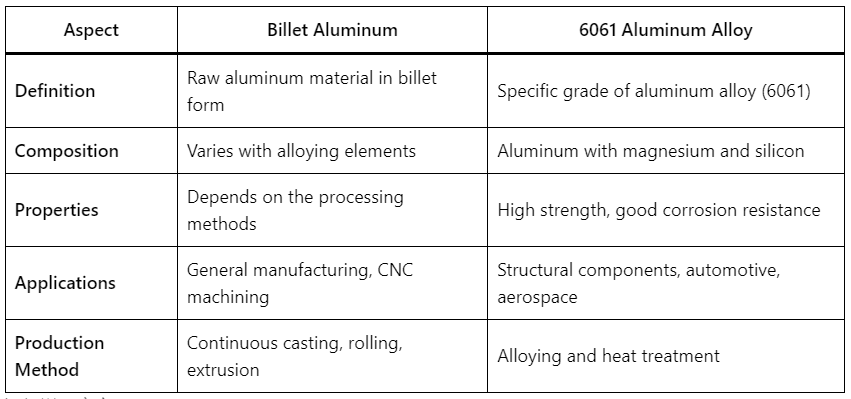
Billet Aluminum vs Cast Aluminum vs Forged Aluminum
In manufacturing, billet aluminum, cast aluminum, and forged aluminum are widely used methods, each with unique properties and suited for different applications. Below is a detailed comparison of these three methods:
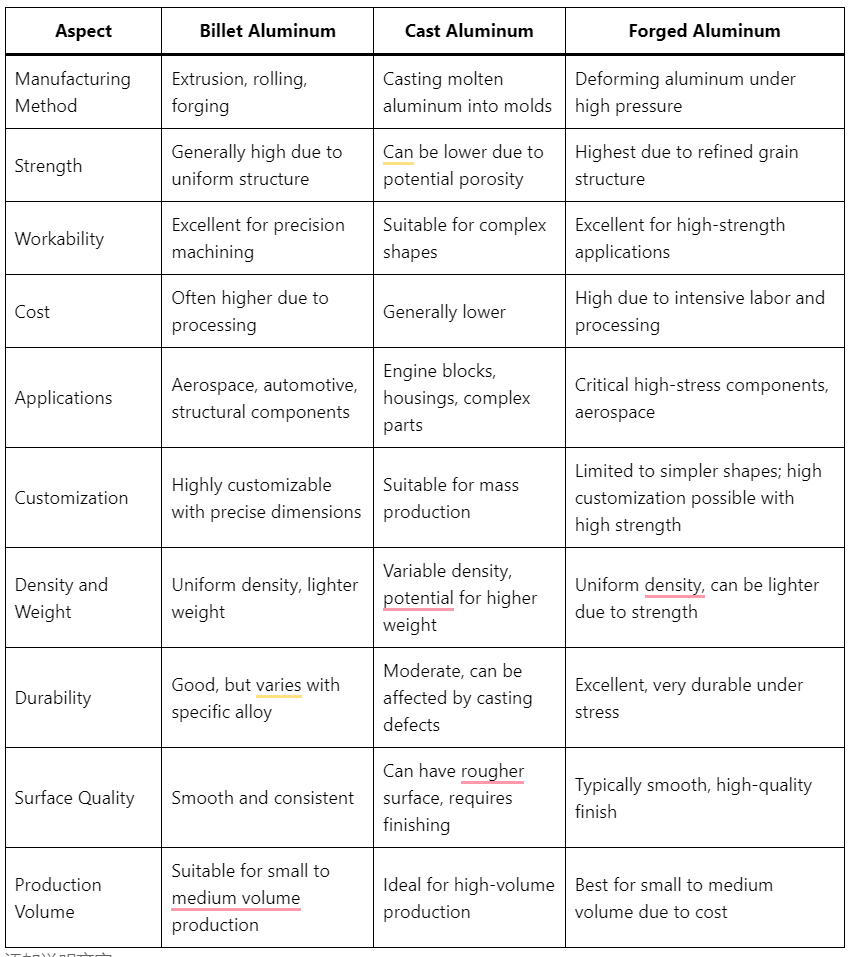
Aluminum billets are indispensable in modern manufacturing due to their unique combination of high strength, lightweight properties, and excellent workability. Their application ranges across numerous industries, including construction, transportation, aerospace, electronics, and new energy sectors. The versatility and adaptability of aluminum billets make them a fundamental material in the pursuit of sustainable development and technological advancement. For those in need of high-quality CNC machining services for aluminum, CNCLATHING.COM offers exceptional precision and reliability. Their expertise in working with aluminum billets ensures that your components are manufactured to the highest standards, meeting all your specific requirements. Explore CNCLATHING.COM today for top-notch CNC machining services tailored to your aluminum needs.


